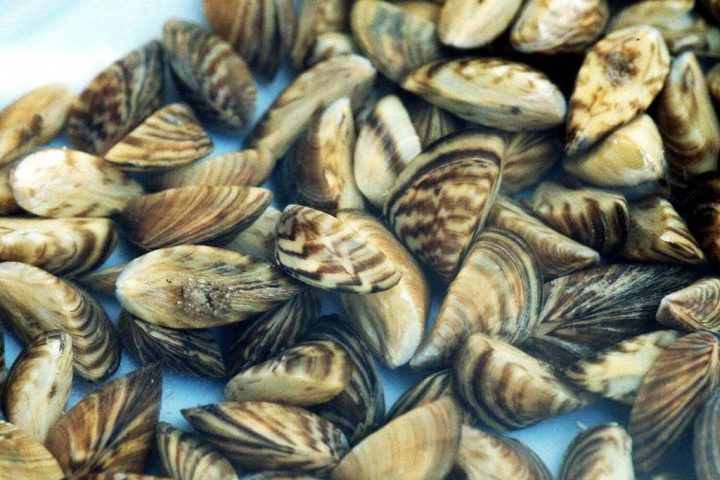Officials say they’re taking measures to contain the area after evidence of zebra mussels was found in Clear Lake.

According to Parks Canada, an adult zebra mussel was found Wednesday near Boat Cove, in Manitoba’s Riding Mountain National Park, during a visual survey of the area.
Snorkellers found an adult-sized, living zebra mussel attached to a rock, as well as a partial shell. This comes on the heels of news last month that water samples collected from Boat Cove between June 19 and 27 tested positive for environmental DNA from zebra mussels.

Winnipeg MP Terry Duguid, parliamentary secretary to the prime minister and special advisor for water, told 680 CJOB’s The Start that steps are being taken to mitigate any outbreak.
“There is a limited infestation at this time, we believe,” Duguid said.

Get breaking National news
“Parks Canada is going to be taking measures to contain that infestation so that hopefully we can have a healthy and ecologically intact lake going forward.”
Among the steps that will be taken: an impermeable containment curtain, set to arrive next week, that will isolate the area where the live mussel was found from the rest of the lake.
“It’s essentially an underwater fence to prevent the flow of water,” Duguid said. “The zebra mussels produce one million babies, so to speak, per year, so this is to prevent the larvae from being transmitted to other portions of the lake.”
The Boat Cove area is also set to be closed to the public during the installation of the curtain, but once it’s installed, it’s not expected to affect the lake’s tour boat, or people’s ability to enjoy swimming or fishing.
Parks Canada said it’s also mulling the use of potash in an attempt to eradicate any mussels, but that will depend on further visual surveys, as well as testing water from other regions of the lake.









Comments